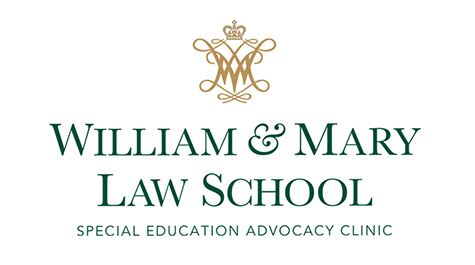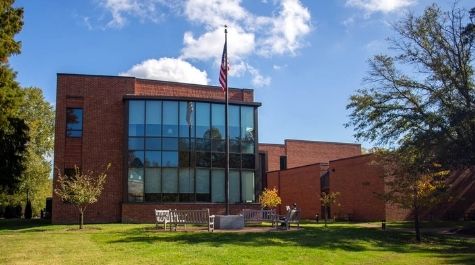W&M Law School PELE Special Education Clinic to Launch Virtual Project to Serve Military Families in Virginia
Project Financially Assisted By Generous Grant from the Virginia Law Foundation
A $40,000 grant from the Virginia Law Foundation to the Parents Engaged in Learning Equality (PELE) Special Education Clinic at William & Mary Law School will support the launch of a virtual clinic project targeting military families across Virginia facing special education issues in their local school districts.
“The Virginia Law Foundation has a long history of supporting William & Mary Law School,” said Professor of the Practice and PELE Clinic Director Christina Jones. “We are extremely grateful for their investment in the expansion of the PELE Clinic and our service to military families in Virginia.”
 William & Mary Law School alumna Brianna M. Crews ’19 has joined the Clinic as a Post-Graduate Legal Fellow and will oversee the development of the Empowering Virginia’s Military Families in Special Education project (learn more). This project was designed to respond to the unique difficulties faced by military families in advocating for special education access.
William & Mary Law School alumna Brianna M. Crews ’19 has joined the Clinic as a Post-Graduate Legal Fellow and will oversee the development of the Empowering Virginia’s Military Families in Special Education project (learn more). This project was designed to respond to the unique difficulties faced by military families in advocating for special education access.
The special education system can be challenging to navigate for any parent, but this problem is further exacerbated for children of active-duty military parents who are three times more likely than other Americans to have moved in the past year. Military-connected parents struggle to understand different states’ laws and coordinate different schools’ services, and their new duty station may not offer the same resources as their last. A 2011 Government Accountability Office report found that 58 percent of school districts reported challenges meeting the needs of military children with disabilities. Those needs can be even more complex, especially as studies show that deployments increase military families’ stress and cause more behavioral and social problems in military children.
In 2020, the five branches of the U.S. military contracted with the PELE Clinic at William & Mary Law School to provide an online special education law training in to military attorneys, paralegals, and Exceptional Family Member Program (EFMP) case managers, who provide resources and support to military families with children with disabilities. Although over 200 professionals received this critical training, Professor Jones believed that the PELE Clinic could do more.
The recently launched project aims to serve these families by providing limited representation consultations with military families in Virginia. During these sessions, law students – supported by pro bono attorneys, including William & Mary graduates – will provide the military families with advice based on their current situation. The law students will then provide the military family with a letter detailing the advice provided during the consultation and additional instructive resources to assist the family in advocating for their child. Crews will also oversee the development of an online curriculum in special education advocacy, which will be made available for free to military families across the Commonwealth. Throughout this process, the PELE Clinic has received much institutional support from Partners in PROMISE, a national nonprofit comprised of military spouses that seeks to elevate the concerns of military special education students and their families to ensure they have the same access to an education as civilian students.
The limited representation model was inspired by a long-standing program offered through the Law School’s Lewis B. Puller, Jr. Veterans Benefits Clinic. On “Military Mondays,” Puller Clinic staff and students meet with veterans and service members on select Mondays at a local Starbucks to provide free advice regarding disability compensation benefits. The PELE Clinic’s model allows use of technology to reach across the Commonwealth for pro bono attorneys and families in need of assistance.
“It is wonderful that the PELE Clinic will be sharing its expertise with military families through this project,” said William & Mary Law School Dean and Trustee Professor of Law A. Benjamin Spencer, who also serves as an officer in the Judge Advocate General's Corps of the U.S. Army (Reserve). “Our Clinical Program, comprising nine clinics in all, provides exceptional opportunities for our students to hone their professional skills while serving communities in need of assistance.”
The PELE Clinic is invigorated by this opportunity to serve the military community that sacrifices so much in defense of our country. The PELE Clinic is grateful to the Virginia Law Foundation for their generosity that makes this project possible. The Virginia Law Foundation promotes through philanthropy the rule of law, access to justice and law-related education.
To learn more about the PELE Clinic, visit its website.
About William & Mary Law School
Thomas Jefferson founded William & Mary Law School in 1779 to train leaders for the new nation. Now in its third century, America’s first law school continues its historic mission of educating citizen lawyers who are prepared both to lead and to serve.
